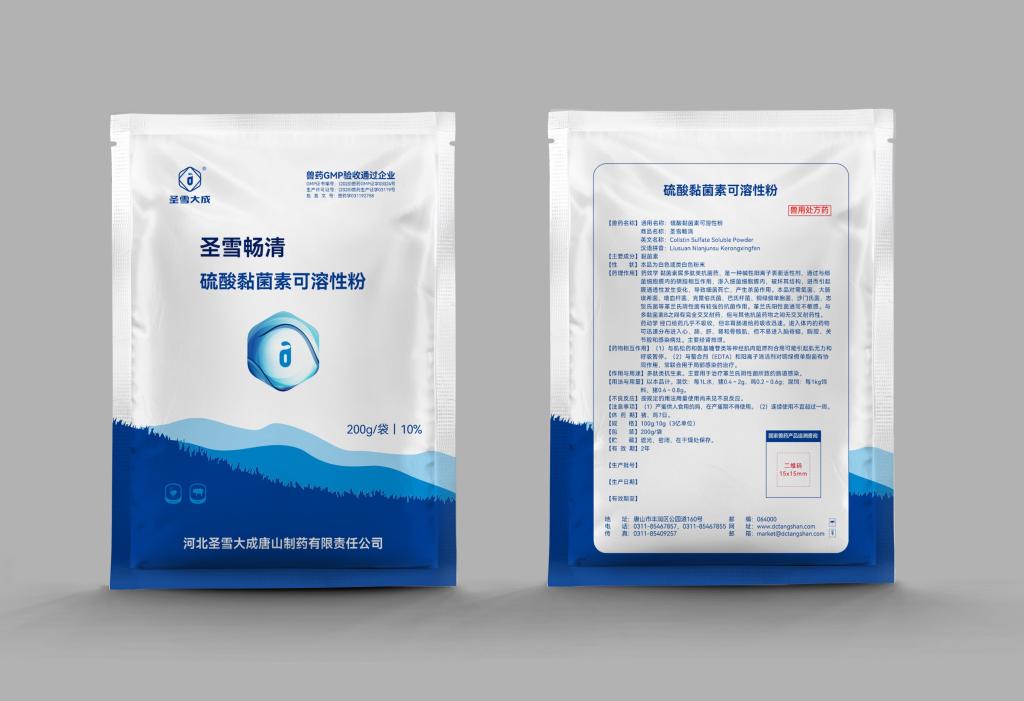Tel:+8618231198596

News
 CONTACT
CONTACT
 CONTACT
CONTACT
- Linkman:Linda Yao
- Tel: +8618231198596
- Email:linda.yao@dcpharma.cn
- Linkman:CHARLES.WANG
- Department:Overseas
- Tel: 0086 0311-85537378 0086 0311-85539701
News
Current Position:
Home >
News
>Colistin Sulfate Soluble Powder in Aquaculture: A Growing Application.
Colistin Sulfate Soluble Powder in Aquaculture: A Growing Application.
TIME:2024-01-08
1. Historical Context and Evolution in Aquaculture:
Aquaculture, the cultivation of aquatic organisms, has witnessed significant growth over the years. This section traces the historical context of colistin sulfate, highlighting its evolution from a human antibiotic to a crucial tool in addressing bacterial infections in aquatic species within the aquaculture sector.
2. Current Applications in Aquaculture:
Colistin sulfate soluble powder has become a cornerstone in aquaculture, playing a pivotal role in disease prevention and control. This section explores the diverse applications of colistin sulfate in aquaculture, including its use in fish and shrimp farming to combat Gram-negative bacterial infections.
3. Disease Challenges in Aquaculture:
Aquaculture faces numerous challenges, with diseases caused by bacterial infections posing a significant threat to the industry's sustainability. This section delves into common bacterial diseases affecting aquatic species and the reasons behind the prevalent use of colistin sulfate as a therapeutic agent in aquaculture.
4. Mechanisms of Action in Aquatic Organisms:
Understanding how colistin sulfate interacts with aquatic organisms is essential for assessing its efficacy and potential impacts. This section explores the mechanisms of action of colistin sulfate in fish and shrimp, elucidating how it combats bacterial infections and aids in promoting the health of aquatic populations.
5. Antibiotic Resistance Concerns:
As in terrestrial farming, the extensive use of antibiotics, including colistin sulfate, in aquaculture raises concerns about antibiotic resistance. This section explores the development of resistance in aquatic environments, the potential transfer of resistance genes, and the implications for both aquatic and human health.
6. Environmental Impact and Residue Concerns:
The discharge of antibiotics, including colistin sulfate, into aquatic ecosystems can have environmental repercussions. This section examines the environmental impact and residue concerns associated with the use of colistin sulfate in aquaculture, emphasizing the need for responsible practices to mitigate these effects.
7. Alternatives and Sustainable Practices:
Efforts are underway to explore alternatives to antibiotics in aquaculture. This section discusses emerging sustainable practices, such as probiotics, vaccines, and improved management techniques, as potential alternatives to or complements for colistin sulfate in maintaining the health of aquatic species.
8. Regulatory Measures and Industry Practices:
Aquaculture regulations and industry practices vary globally. This section provides an overview of how different countries approach the use of colistin sulfate in aquaculture, examining regulatory measures, restrictions, and the industry's commitment to responsible antibiotic use.
9. Technological Advancements and Precision Aquaculture:
Technological advancements, including precision aquaculture, offer opportunities to optimize antibiotic use in aquaculture. This section explores how technology can be harnessed to enhance disease management, improve feed efficiency, and reduce the overall reliance on antibiotics like colistin sulfate.
10. International Collaboration and Best Practices:
Given the global nature of aquaculture, international collaboration is essential in addressing challenges associated with antibiotic use. This section advocates for the sharing of best practices, knowledge exchange, and collaborative efforts to promote responsible antibiotic use in aquaculture.
11. Future Directions and Research Needs:
As aquaculture continues to evolve, ongoing research is crucial to address the challenges and opportunities associated with colistin sulfate and other antibiotics. This section outlines potential future directions, including research priorities, policy changes, and technological innovations needed to ensure the sustainability of aquaculture.
12. Conclusion:
Colistin sulfate soluble powder's growing application in aquaculture reflects its significance in addressing bacterial infections that threaten the health of aquatic species. As the aquaculture industry navigates the challenges of antibiotic resistance and environmental impact, responsible practices, innovative alternatives, and international collaboration are essential to ensure the continued growth and sustainability of this vital sector. By fostering a holistic approach to antibiotic use in aquaculture, stakeholders can contribute to a future where the health and well-being of aquatic populations are safeguarded while balancing the need for effective disease management.
- Tel:+8618231198596
- Whatsapp:18231198596
- Chat With Skype







